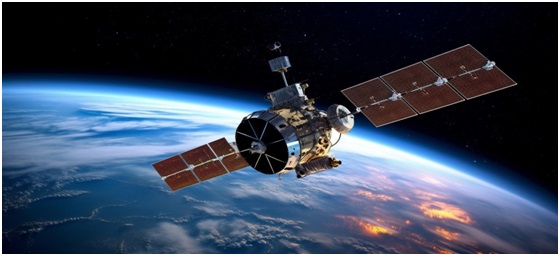India to Hold Satellite Spectrum Auctioning (The Hindu BusinessLine)

- 10 Oct 2023
Why in the News?
The Elon Musk vs Mukesh Ambani battle on whether to auction or allocate satellite spectrum has attracted intervention from the Prime Minister’s Office (PMO).
What is Satellite Spectrum?
- The satellite spectrum is like a special section of radio waves reserved for satellites when they're up in space.
- It's part of the larger family of radio waves that we use for things like Wi-Fi, TV, and radio.
- This spectrum serves as a vital resource for countries, facilitating satellite broadcasting, communication, and weather services.
Key Points:
- Limited Resource: The satellite spectrum is finite, allocated for activities like satellite broadcasting and communication.
- It plays a crucial role in facilitating services provided by communication satellites and weather satellites.
- Frequency Bands: The spectrum is categorized into different frequency bands, chosen based on diverse applications.
- The frequency assigned during a satellite's construction remains unchanged post-launch.
- Impact on Data Transfer: The frequency of a signal dictates the speed of data transfer.
- Higher frequencies enable faster data transmission, but they also entail shorter wavelengths, leading to signal attenuation over distances and increased interference risks.
- Frequency Range: Satellites typically transmit in the frequency range of 1.5 to 51.5 gigahertz.
- High-speed broadband operations often use the higher end of this spectrum.
About International Telecommunication Union (ITU):
- Founded in 1865 as the International Telegraph Union, later becoming a specialized agency of the United Nations in 1947.
- Functions:
- Allocates global radio spectrum and satellite orbits.
- Coordinates and sets technical standards for telecommunication/ICT.
- Strives to enhance ICT access in underserved communities globally.
- Headquarters: Geneva, Switzerland.
- Membership: Comprises 193 countries and nearly 800 private sector entities and academic institutions.
- India's Association with ITU: India has actively participated in the ITU since 1869, maintaining a consistent presence on the ITU Council since 1952.
